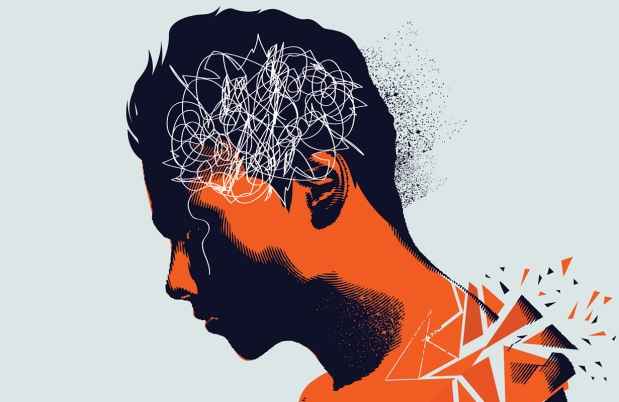A unifying theme in leadership changes at a number of McLean Hospital’s divisions during 2022 was the integration of clinical and research activities while also making diversity, equity, and inclusion a centerpiece.
Daniel P. Dickstein, MD, FAAP, assumed the helm of the Nancy and Richard Simches Division of Child and Adolescent Psychiatry with the expressed goal of using the same approach for treating childhood mental health conditions that’s been successful for treating childhood cancer.
Sara L. Weisenbach, PhD, ABPP, the chief of Neuropsychology, is working to engage her specialty—historically focused on clinical and educational applications—in more services throughout the hospital, particularly research.
R. Kathryn McHugh, PhD, chief of Psychology at McLean, aims to build a sense of community for psychology across all these divisions to build new collaborations.
Daniel P. Dickstein, MD, FAAP
Dickstein, who joined McLean in 2020 from Brown University, brought with him the PediMIND Program, which integrates pediatric mood, imaging, and neurodevelopment programs in order to get a faster, more accurate diagnosis and treatment plan.
These are the same tactics that have brought the five-year survival rates for the most common types of childhood cancer to over 95%.
“The approach of harnessing biological mechanisms is how childhood cancer is no longer a top-three cause of death of children,” he said. “But suicide is the second leading cause of death, starting, believe it or not, at age 10, all the way up to age 34.”
Adding research to the division’s clinical and educational tools led to the Child and Adolescent Routine Evaluation (CARE), a brief but comprehensive research assessment for conditions ranging from autism and ADHD to anxiety, trauma, and sleep problems.
“We want to make sure that nobody falls through the cracks,” Dickstein said.
That also means ensuring children and their parents see professionals who look like them.
To that end, the division now participates in the McLean Mental Health Research Summer Program (MMHRSP), a 10-week paid internship that brings Black, Indigenous, and people of color undergraduate students to McLean’s campus to gain experience in neuroscience or clinical psychology research.
The division also works with the Post-Baccalaureate Child and Adolescent Clinical Fellowship Program (PBac), a two-year paid program for college graduates interested in pursuing a mental health career, whether in medicine, nursing, or social work.

R. Kathryn McHugh, PhD, Sara L. Weisenbach, PhD, ABPP, and Daniel P. Dickstein, MD, FAAP
Sara L. Weisenbach, PhD, ABPP
Weisenbach, who joined McLean in 2022 from the Renaissance School of Medicine at Stony Brook University, heads a service that offers diagnostic testing and comprehensive evaluations of cognitive abilities, emotional functioning, and personality.
These assessments are conducted via interviews, written tests, and some computerized tasks.
“Historically, neuropsychology has employed paper-and-pencil tests,” she said. “We are trying to place ourselves in the context of where neuropsychology is heading. So there’s a lot of emphasis on the use of digital health tools in clinical settings.”
She is also working to help “expand our reach into a more diverse community that maybe hasn’t historically been served by our service.”
That includes developing better community outreach, such as adding a bilingual neuropsychologist with a particular interest in the Hispanic community.
Weisenbach is also looking to expand neuropsychology research.
These efforts include mentoring junior faculty with a desire and ability to pursue academic research. And she brought a lab to McLean that explores the neurobiological mechanisms of depression and mood disorders late in life.
“We are studying human beings in real time, but we’re also trying to understand the processes that are underlying some of the functional behavioral outcomes that we see,” Weisenbach said.
“We hope that new treatments can then be informed by a better understanding of the neurobiology of what’s really happening in the brain.”
R. Kathryn McHugh, PhD
McHugh has firsthand experience watching the transformation of the psychology department. It was primarily a pre-doctoral internship training program when she first joined McLean with a BA in 2003 and rejoined the hospital with a PhD in 2011.
Her task today is “to think about what comes next for psychology and how we build and foster the community of clinicians and scientists who are here now, and how we think about what role psychology will play both locally at McLean and more broadly in public health and scientific discovery in the next 10 years.”
Because psychologists work across McLean’s divisions, “sometimes it can be hard to connect with people in another area of the hospital who are doing something tremendous and really pertinent to what you’re doing,” said McHugh.
Making needed connections requires interdisciplinary engagement.
“Clinical psychology is a big part of psychology, but it’s not the only part. We have psychologists doing work in neurosciences and basic behavioral research, all the way through psychologists who are working toward the dissemination and training mission to get the most effective treatments out into the community.”
That training focuses on huge gaps in the mental health care workforce.
“Training is a central pillar of what we do,” she said. “How do we support early career faculty? How do we think about increasing the diversity of the mental health care workforce? That’s going to be a place that we are really going to look to spend a lot of effort as a department.”
Philanthropy helps support recruitment of top leadership, research, clinical care, training, and advocacy. To learn more, visit mclean.org/give or call 617.855.2191.
Media Requests
Journalist or member of the media? We are available 24/7 for media requests.



